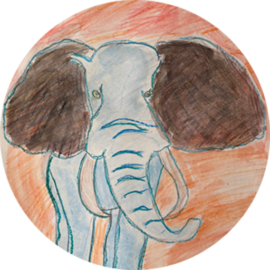The Shadow of Greatness : ‘The Worst Person in the World’ and Fear of Creativity
Julie wants to become a doctor. Then she realises she entered med school simply because her perfect grades allowed her to. Then she thinks she’s meant to be a psychologist and switches track, only to again find that it’s not for her. She then believes her true purpose lies in becoming a photographer. But no sooner has she spent her last dime on expensive gear, than she meets Aksel.
He’s significantly older, and his obsession with his art (graphic novels) has rendered fame and recognition. Julie quickly forgets about her camera and settles into a life where she can feel vaguely creative, without the effort of actually doing anything.
That is until she wakes up one day seeing that she’s going nowhere fast. She starts an affair with a man from the local coffee shop, someone who’s everything Aksel is not; easy going, laid back, happy-go-lucky.
Eventually she dumps him too, and finds her way back to her forgotten camera.
Oh and while she’s moving on from hopeless men, she also finally accepts the truth about her egotistic father and decides to walk away from him as well.
This all happens in the Norwegian film The Worst Person in the World.
My default attitude towards Nordic cinema is to expect little, but this time I was pleasantly surprised. Renate Reinsve feels more like she is Julie than like she’s busy acting. Anders Danielsen Lie is equally good as Aksel.
More than the powerful acting however, it’s the subtext that gets me.
Which is ironic because treating the story as a mere carrier wave for ideas, is exactly what I generally find to be the achilles heel of Nordic (and especially Swedish) cinema. To quote film critic Aleen Wetstein: “All I want is a story. If you have a message, send It by Western Union.”
And still it’s the exactly the *message* of this film that stays with me.
I think Julie’s struggle to find her path is deeply human. In some shape or form it’s the same struggle we all have to confront. A struggle between the urge to explore creativity, and the instinct to hide from it.
Creativity is frightening. We long for it but fear it might consume us, so we keep it at arm’s length. Aksel becomes the perfect shelter for a while. Watching him draw is like cozying up in front of a fire.
But it’s a fire that fails to keep Julie warm, at the end of the day she’s left unfulfilled.
As she would be, given that creativity – like celebrity – doesn’t rub off.
It took a few days before I decoded what Julie’s story is really telling me. What finally made the penny drop was actually an old audio clip I happened to stumble upon, an interview from 1974 with American author / philosopher Robert M. Pirsig.
In it he says that he needs to be really bored to be able to write. He goes on to say that people think writers are socially reclusive, but what’s really going on is that they have to isolate themselves from outside stimulus in order to be bored enough to start hearing their inner voice.
I think that’s beautifully put, and somehow I also think it’s what’s happening in Julie’s life. Living in the shadow of greatness can feel exciting for a while, until you realise that only you can live your own life.
